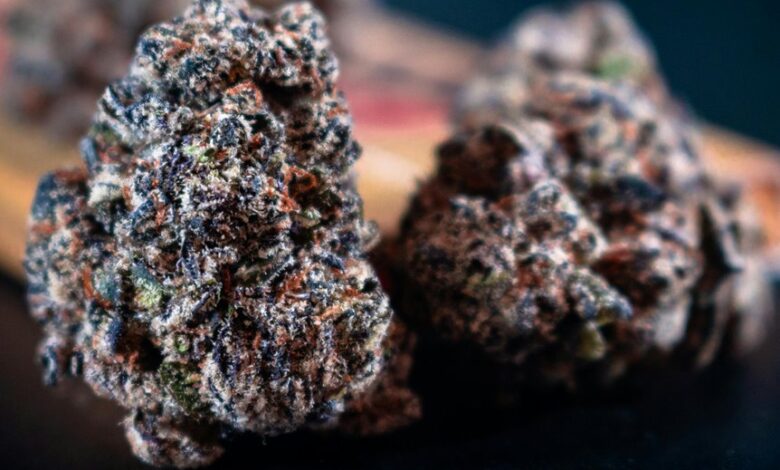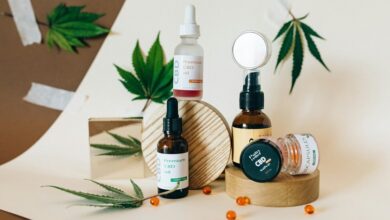Difference Between Cbd and Delta 8

The distinction between CBD and Delta-8 THC is crucial for consumers navigating the cannabis market. While CBD is known for its non-psychoactive nature and therapeutic benefits, Delta-8 THC offers a milder high with potential therapeutic applications. Understanding these differences can influence choices regarding use and desired effects. As the market evolves, so do the options available, raising questions about their specific benefits and legal implications. What should consumers know before making a decision?
Understanding CBD: What It Is and How It Works
Cannabidiol, commonly known as CBD, is a non-psychoactive compound derived from the cannabis plant.
Its therapeutic properties stem from various methods of CBD extraction, ensuring purity and potency.
Users often seek specific CBD dosages to achieve desired effects, promoting wellness without the intoxicating effects associated with other cannabis compounds.
Understanding CBD empowers individuals to explore its potential benefits freely and responsibly.
Understanding Delta-8 THC: What It Is and How It Works
Delta-8 THC, a cannabinoid derived from hemp and cannabis plants, is gaining attention for its unique effects and potential therapeutic benefits.
Users report delta 8 benefits such as reduced anxiety and improved mood.
As for delta 8 legality, it is often considered legal under federal law, provided it contains less than 0.3% delta-9 THC, although state regulations may vary.
The Psychoactive Effects of CBD vs. Delta-8
The psychoactive effects of CBD and Delta-8 THC differ significantly in their impact on the mental state.
CBD is generally considered non-psychoactive, promoting relaxation without producing a high, while Delta-8 THC offers a milder psychoactive experience compared to its more potent counterpart, Delta-9 THC.
Understanding these distinctions is crucial for consumers seeking specific effects from cannabis-derived products.
Psychoactivity Levels Compared
While both CBD and Delta-8 are derived from the cannabis plant, their psychoactive effects differ significantly.
The psychoactivity comparison reveals that Delta-8 produces a milder high than Delta-9 THC, offering a more subdued experience.
In contrast, CBD is non-psychoactive, focusing on therapeutic benefits without intoxication.
Understanding these cannabinoid differences is essential for consumers seeking specific effects without unwanted psychoactive experiences.
Effects on Mental State
Although both CBD and Delta-8 THC originate from the cannabis plant, their effects on mental state diverge significantly.
CBD is associated with cognitive enhancement and mood stabilization, promoting a sense of calm without psychoactive effects.
In contrast, Delta-8 THC offers mild psychoactivity, potentially altering perception and mood more noticeably.
This distinction shapes how individuals approach each compound for mental well-being and overall experience.
Therapeutic Benefits of CBD
CBD is recognized for its therapeutic benefits, particularly in pain relief and anxiety reduction.
Research indicates that CBD may help alleviate chronic pain by interacting with the body's endocannabinoid system.
Additionally, its potential to reduce anxiety has made it a popular choice for those seeking a natural alternative to traditional treatments.
Pain Relief Properties
Pain relief stands as one of the most notable therapeutic benefits associated with CBD. Users often incorporate CBD into their pain management strategies due to its potential to alleviate discomfort.
Research suggests that CBD may aid in inflammation reduction tactics, thus enabling individuals to find relief from chronic pain conditions. This approach offers a natural alternative for those seeking freedom from traditional pain relief methods.
Anxiety Reduction Effects
Anxiety, a prevalent mental health concern, can significantly impact daily life and overall well-being.
CBD has emerged as a potential therapeutic option, with studies suggesting that appropriate CBD dosage may aid in reducing anxiety symptoms.
Moreover, understanding delta 8 interactions with CBD can further enhance its effectiveness.
Individuals seeking relief should consult professionals to tailor their approach for optimal results.
Therapeutic Benefits of Delta-8 THC
Although often overshadowed by its more well-known counterpart, Delta-8 THC has garnered attention for its potential therapeutic benefits.
With emerging research highlighting its therapeutic applications, many consumers are exploring Delta-8 as a preferable alternative for relief from ailments such as pain, anxiety, and nausea.
This growing interest reflects shifting consumer preferences towards cannabinoids that offer a milder psychoactive experience while retaining therapeutic properties.
Legal Status of CBD and Delta-8 THC
As the landscape of cannabis legislation continues to evolve, understanding the legal status of CBD and Delta-8 THC is essential for consumers and businesses alike.
CBD is widely accepted under federal law, while Delta-8 THC often faces regulatory differences that can vary by state.
These legal implications impact availability and usage, highlighting the importance of staying informed about current laws governing these substances.
Methods of Consumption: CBD vs. Delta-8
With the legal status of CBD and Delta-8 THC clarified, consumers can better understand their options for consumption.
Both substances offer various methods, including vaping options and edible formats. Vaping allows for rapid effects, while edibles provide a longer-lasting experience.
These diverse methods cater to different preferences, enabling individuals to choose how they wish to incorporate these compounds into their lifestyles.
Choosing Between CBD and Delta-8: Which Is Right for You?
When considering whether to choose CBD or Delta-8 THC, individuals must evaluate their specific needs and preferences.
User experiences can vary significantly; CBD may appeal to those seeking therapeutic benefits without psychoactive effects, while Delta-8 might attract users looking for a milder high.
Ultimately, the choice hinges on user preferences, desired effects, and individual tolerance levels, guiding them toward the best option for their lifestyles.
Conclusion
In the intricate tapestry of cannabinoids, CBD and Delta-8 THC each weave their unique threads. CBD stands as a tranquil river, flowing with therapeutic benefits and a soothing touch, while Delta-8 THC dances like a gentle breeze, offering a mild high and its own therapeutic allure. As consumers navigate this landscape, understanding the distinct characteristics of each can illuminate their path, guiding them toward the cannabinoid that best aligns with their desires and wellness goals.






